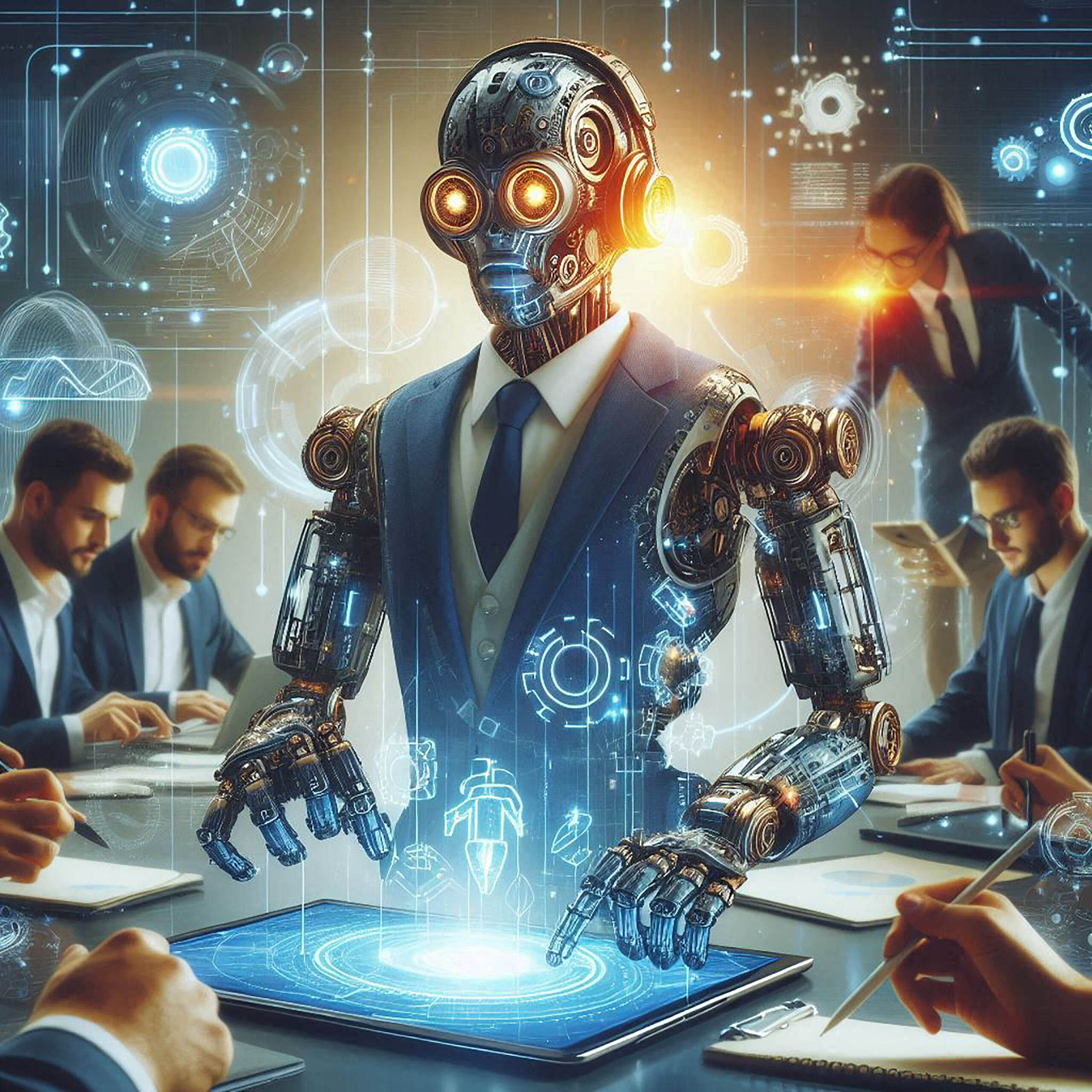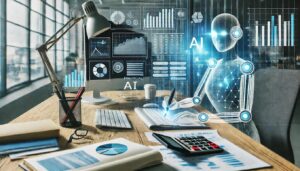Why 2025 Will Be The Year of AI Agents
The technological revolution spearheaded by AI agents is poised to redefine our world in unprecedented ways as we approach 2025. This transformative moment marks a significant leap forward in how intelligent systems revolutionize our daily lives, business operations, and entire industries. The journey from basic artificial intelligence research to today’s sophisticated AI agents reflects decades of innovation, experimentation, and breakthrough developments that have culminated in a technological renaissance.
We strongly recommend that you check out our guide on how to take advantage of AI in today’s passive income economy.
Table of Contents
The Evolution of AI Technology
The remarkable journey of artificial intelligence development illuminates why 2025 represents such a pivotal milestone for AI agents. From 2020 to 2023, we witnessed the emergence and dominance of large language models, which primarily focused on question-answering capabilities and basic text generation. These early systems laid the groundwork for more sophisticated applications, but their limitations became increasingly apparent as users demanded more practical, action-oriented solutions. The transition from passive AI systems to active AI agents marks a fundamental shift in how we interact with and benefit from artificial intelligence.
The distinction between traditional AI systems and modern AI agents represents a quantum leap in capability and functionality. While earlier AI iterations excelled at processing and analyzing information, today’s AI agents demonstrate remarkable abilities in executing complex tasks autonomously. This evolution from information processing to action-taking capabilities has opened doors to applications that seemed impossible just a few years ago. The implications of this shift extend far beyond simple automation, touching every aspect of how we work, learn, and solve problems.
The Rise of Specialized AI Agents
In the cybersecurity sector, AI agents have achieved remarkable breakthroughs that demonstrate their practical value in highly specialized fields. These sophisticated systems can now outperform human experts in penetration testing, automatically identifying vulnerabilities in web systems and generating comprehensive security reports. This advancement represents just the beginning of what specialized AI agents can achieve when focused on specific domains. The ability to autonomously execute complex security protocols while maintaining high accuracy levels showcases the potential for AI agents to transform other technically demanding fields.
The Network Effect: Swarms of AI Agents
As we approach 2025, the focus has shifted dramatically toward creating and deploying networks of AI agents capable of working in harmony. These collaborative systems, or swarms, represent the next frontier in artificial intelligence development. The concept of multiple AI agents operating in concert opens up possibilities for tackling complex challenges that would be impossible for single agents to handle effectively. This networked approach to AI agent deployment mirrors natural systems where collective intelligence often surpasses individual capability.
Human-AI Collaboration
The integration of AI agents into professional environments has revealed a crucial insight: the most successful implementations maintain a balance between artificial intelligence and human expertise. In the sales sector, for example, AI agents excel at conducting thorough research and preparation work, allowing sales professionals to focus on building meaningful client relationships. This symbiotic relationship between humans and AI agents has produced remarkable results, with some organizations reporting performance improvements exceeding 300% when maintaining appropriate human oversight in the process.
Impact Across Industries
The transformative potential of AI agents extends far beyond conventional applications in sales and cybersecurity. Healthcare and education stand as prime examples of sectors poised for revolutionary change through AI agent integration. These industries have long struggled with rising costs, limited accessibility, and resource constraints. AI agents offer promising solutions for both efficiency improvements and quality enhancements, potentially addressing some of the most persistent challenges in these critical sectors.
Healthcare Revolution
The implementation of AI agents in healthcare settings promises to fundamentally transform patient care delivery and administrative efficiency. These systems demonstrate remarkable capabilities in analyzing medical records, assisting with diagnoses, and managing patient schedules more effectively. The potential impact extends to personalized medicine, where AI agents can process vast amounts of patient data to recommend tailored treatment plans. This level of customization and efficiency could lead to significantly better patient outcomes while potentially reducing the overall cost of healthcare delivery.
Educational Transformation
The education sector stands to benefit enormously from the integration of AI agents, particularly in addressing the growing demand for personalized learning experiences. These systems can adapt to individual learning styles, provide immediate feedback, and offer supplementary resources tailored to each student’s needs. The potential for AI agents to democratize access to quality education becomes particularly significant when considering their ability to scale personalized instruction to reach underserved communities and provide continuous learning opportunities for adult learners.
The Economic Impact
The integration of AI agents across various sectors promises to generate substantial economic benefits that extend well beyond simple cost reduction. These systems have the potential to create entirely new business models and revenue streams while simultaneously improving operational efficiency. Companies that successfully implement AI agents could see dramatic improvements in their competitive positioning and ability to scale operations without proportional increases in costs. The economic implications of widespread AI agent adoption suggest a fundamental restructuring of how value is created and delivered across industries.
Challenges and Considerations
While the potential of AI agents appears boundless, several critical considerations around ethics, privacy, and security require careful attention. As these systems become more sophisticated and integrated into sensitive areas of our lives, establishing proper governance frameworks and ensuring responsible development becomes increasingly crucial. The success of AI agents in 2025 and beyond will largely depend on how effectively we address these challenges while maintaining the pace of innovation.
Future Prospects
Looking beyond 2025, the continued evolution of AI agents suggests even more exciting developments on the horizon. These systems show particular promise in addressing complex global challenges like climate change, scientific research, and sustainable development. The key to unlocking this potential lies in our ability to harness the technology responsibly while fostering continuous innovation and improvement.
The Road Ahead
The groundwork being laid by current AI agent developments will enable increasingly sophisticated applications in the coming years. The focus on creating networks of specialized AI agents working in harmony represents just the beginning of this technological revolution. As these systems continue to evolve, their ability to adapt, learn, and improve their performance across various domains will only grow stronger.
Conclusion
The convergence of advanced AI capabilities, practical applications, and increasing adoption makes 2025 the definitive year for AI agents. As these systems continue to evolve and integrate more deeply into various sectors, their impact on society will become increasingly profound. The key to success lies in maintaining a careful balance between innovation and responsible development, ensuring that AI agents serve to enhance rather than replace human capabilities.
The journey toward widespread AI agent adoption is gaining momentum, and the foundation has been laid for a transformative 2025. As we continue to explore and expand the possibilities of this technology, the potential for positive impact across industries remains virtually limitless. The future of AI agents extends beyond mere technological advancement – it represents a fundamental shift in how we approach problem-solving, innovation, and human progress. By embracing this technology thoughtfully and responsibly, we can work toward creating a more efficient, accessible, and equitable world for everyone.

We strongly recommend that you check out our guide on how to take advantage of AI in today’s passive income economy.




